Chinese on the Russian Far East (part 3)
Previously about Chinese people on the Russian Far East:
Part1
Part2
Under the terms of the Treaty of Aigun, the Chinese enjoyed the right of extraterritoriality, and thus of immunity that exempted foreigners from the jurisdiction of the country in which they lived.
This meant that Chinese who had committed a crime on Russian territory were not tried in Russia, but were extradited to China to be tried and punished according to the laws of the Middle Kingdom. Because of the right of extraterritoriality, and above all because of the presence of Qing government officials in Russia, Chinese migrants did not really consider this region to be foreign territory, or to see their departure for Russia as immigration. The Qing government energetically encouraged such an attitude; the Chinese authorities regarded the Russians as temporary occupants of the region, where they resided at the indulgence of the Son of Heaven, who would soon liberate those lands.
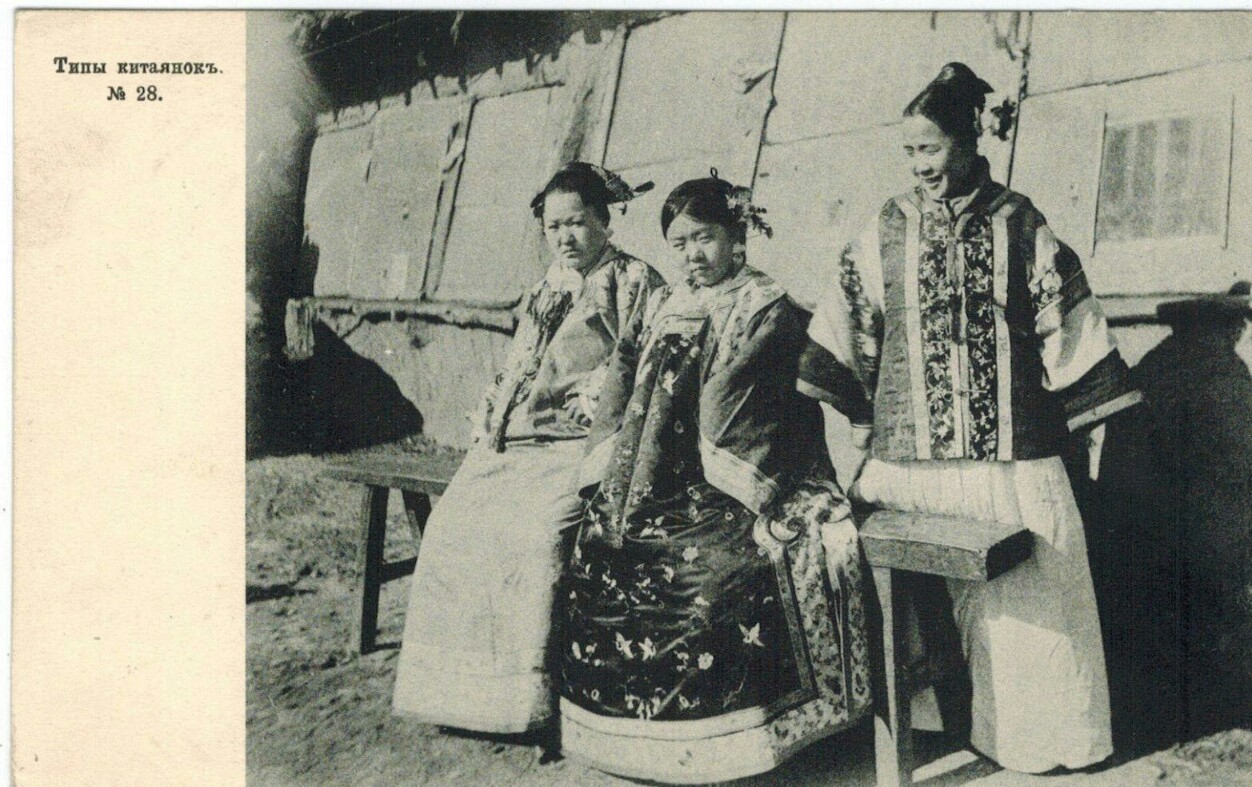
(Postcard printed in Vladivostok in the late XIX century, the inscription on the postcard reads : "The type of Chinese women".)
Practice, people who were sent home often purchased their freedom by paying large sums to local officials, and then returned to Russia. Officially, the right to extraterritoriality was abolished in 1882.
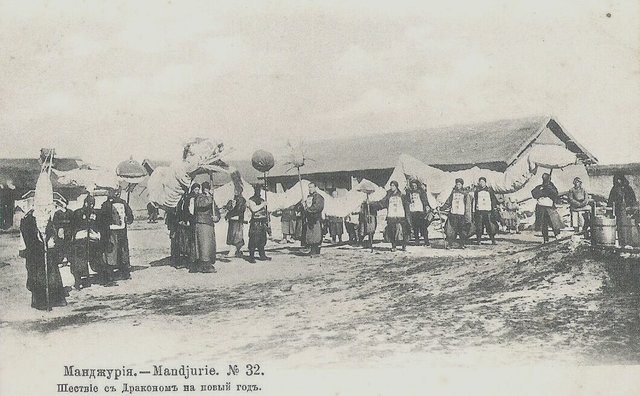
(the signature of this photo :Procession with dragons for the Lunar New Year ,Manchuria, late 19th century)
However, cases of judgment and punishment of Chinese nationals by the Russian courts were extremely rare. On the one hand, the Chinese never called on the Russian authorities, preferring to settle their problems within their own community. On the other hand, local government never had the financial resources or will to set up the means of controlling or even keeping an eye on the activities of the migrants.
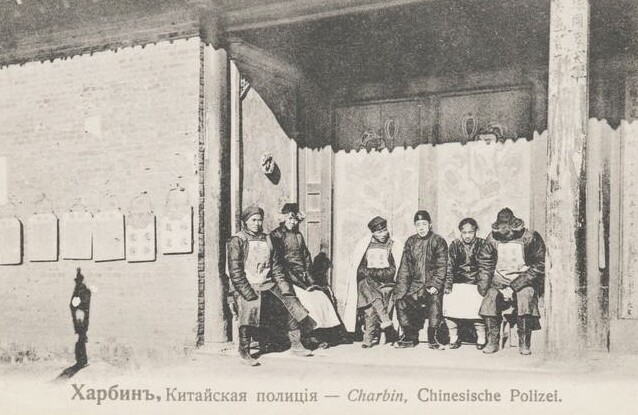
(the signature of this photo :" the Chinese police in Harbin" at the end of the 19th century)
Chinese migrants often paid the taxes linked to their activities in Russia to Qing officials rather than to the Russian authorities. Before leaving for Russia, a Chinese man who wished, for example, to go fishing in Russian waters had to go to the office of the Chinese governor in the area bordering on Russia in order to receive permission to harvest seafood.
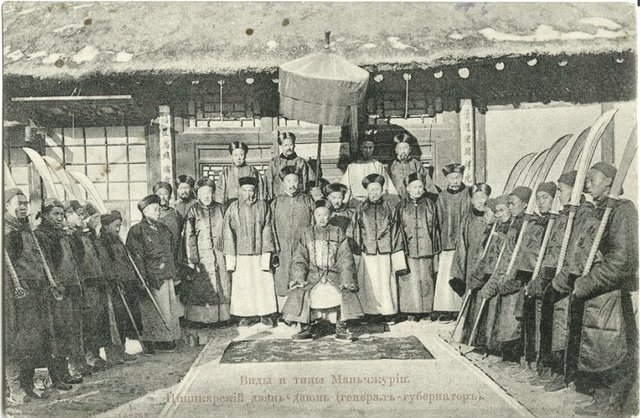
( the signature of this photo: General-Governor of Qiqihar province, the end of 19th century)
The Chinese official inscribed on the paper the number of boats and workers who were to carry out the work, and then the applicant paid the tax. Every year the Chinese governor appointed special inspectors who went to Russia and checked the papers of Chinese nationals to make sure they were in order. Those who had not obtained permission had to pay the tax and a fine.
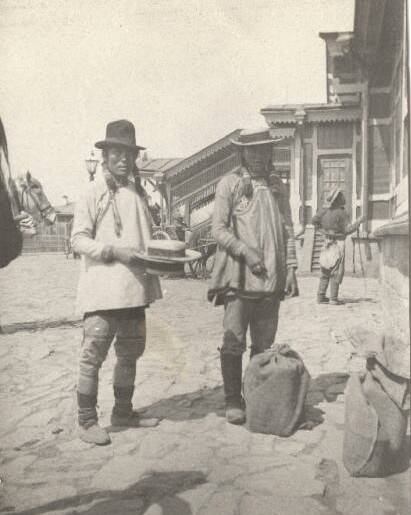
(Chinese, selling hats at the railway station of Khabarovsk late19th-early 20th century)
A new stage in Chinese migration to Russia began at the end of the nineteenth century when the rapid economic development of the Russian Far East called for a large work force, and internal Russian migration was unable to satisfy this demand.
The main reason was that the transportation of Russian workers from the European part of Russia was very expensive and time consuming. Moreover, given the harsh climate and extreme living conditions in the Russian Far East, Russians would only leave their traditional homelands unwillingly.
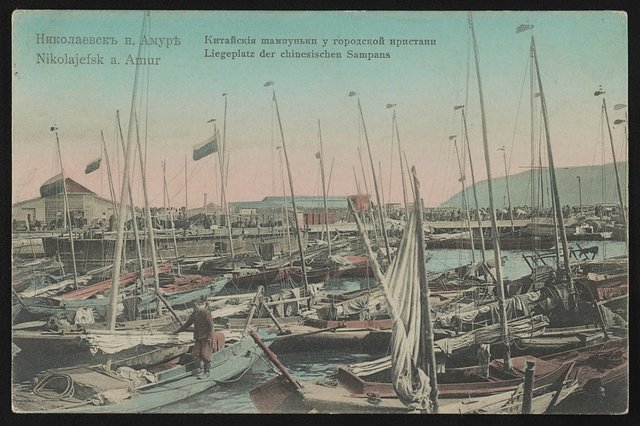
( Chinese boats in the port of Nikolayevsk-on-Amur, beginning of XX century)
The first settlers in the Russian Far East were soldiers and the Cossacks, who were used to, and had experience of, living on the distant borders of the Empire
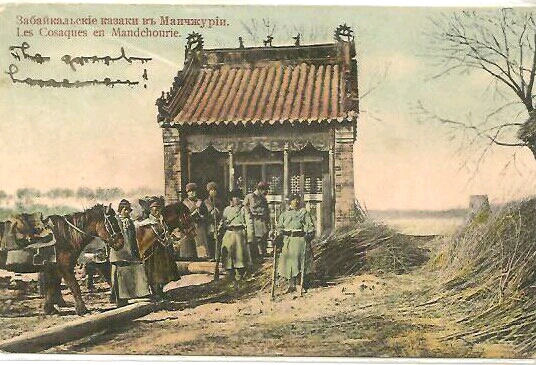
(Cossacks troops in the North-East China, the end of 19th century)
To be continued...
This post has received a 0.12 % upvote from @drotto thanks to: @fareast-history.
This post has received a 0.86 % upvote from thanks to: @fareast-history.
thanks to: @fareast-history.
For more information, click here!!!!
Send minimum 0.100 SBD to bid for votes.
Before sending a transfer to @minnowhelper, verify that your publication meets these conditions (http://www.minnowhelper.com/conditions.php). After the transfer is made, no claims will be received.
The Minnowhelper team is still looking for investors (Minimum 10 SP), if you are interested in this, read the conditions of how to invest click here!!!
ROI Calculator for Investors click here!!!
You got upvoted from @adriatik bot! Thank you to you for using our service. We really hope this will hope to promote your quality content!
@originalworks
Sneaky Ninja Attack! You have been defended with a 1.74% vote... I was summoned by @fareast-history! I have done their bidding and now I will vanish...Whoosh
You got a 1.25% upvote from @postpromoter courtesy of @fareast-history! Want to promote your posts too? Check out the Steem Bot Tracker website for more info. If you would like to support development of @postpromoter and the bot tracker please vote for @yabapmatt for witness!